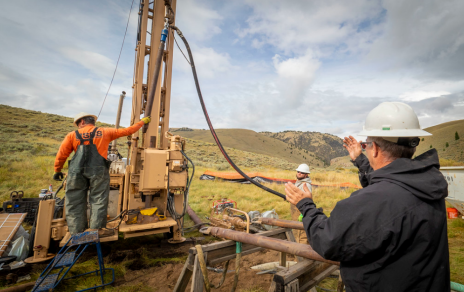More than $10 billion in bids for British companies announced on Monday, this year’s busiest day according to Dealogic data, showed how low valuations and the market’s relative stability were attracting rivals and funds after a volatility-induced pause.
Companies may also be using the opportunity to enter the UK market before potential further weakening of the dollar or strengthening of the pound made future transactions more expensive, analysts said.
Among those to announce takeover offers for UK firms on Monday were U.S. chipmaker Qualcomm, private equity firm Advent, and France’s L’Oreal.
While U.S. President Donald Trump’s announcement of sweeping tariffs and the resulting volatility hampered dealmaking for weeks, some companies are now finding the right conditions to agree on transactions.
Niccolo de Masi, CEO of Maryland-based IonQ, which on Monday announced a $1.08 billion acquisition of British quantum computing firm Oxford Ionics, said that in addition to Britain’s talent pool, the geopolitical backdrop made the deal more compelling as governments want more “sovereign quantum networks,” he said.
“People want things on-premise and they want things to be local,” de Masi told Reuters.
So far this year, there have already been 30 bids for UK companies valued at more than 100 million pounds ($135.44 million), compared with 26 over the same period of last year and 45 for the whole of 2024, according to Peel Hunt.
The total value of 24 billion pounds of deals announced to date compared with 36 billion pounds in the year-ago period, which was skewed by a few large deals, such as International Paper’s $7.1 billion bid for D.S Smith.
Years of outflows from UK equities that depressed valuations for British companies compared with their competitors listed on other European or U.S. exchanges, have played a role in making them more attractive as acquisition targets.
For example, the discount between the FTSE 100 .FTSE and the U.S. S&P 500 .SPX benchmarks peaked at about 49.5% in January and is about 41% now.
“Management teams have been happier to accept bids because sometimes that is an easier way to crystallize the valuations and as equity markets have been so challenging for so long,” Amanda Yeaman, co-manager of the abrdn UK Smaller Companies Fund and the abrdn UK Smaller Companies Growth Trust plc.
Moreover, bidders are being drawn to a relatively stable UK economic and political backdrop.
“We now have an improving economic environment in the UK, and the regulatory position is much more predictable,” said Charles Hall, head of research at Peel Hunt. “Buying a UK company at the moment is likely to be less risky than, say, buying a U.S. business.”
The trade deals that Britain has pursued also show the country is “open for business,” Yeaman said. And with no general election due soon, Britain promises political stability. “Our markets really like stability and for the next four years, that is something that we have, which is less predictable in other geographies,” she said.
Analysts also say the pound’s strength does not seem to act as a deterrent.
“Particularly global investors, U.S. investors are thinking, let’s grab as much as we can before things get more expensive and currency tailwinds are still there,” said Magesh Kumar, equity strategist at Barclays.
This year’s largest bids so far were all announced this week, with Advent offering 3.7 billion pounds for scientific instruments maker Spectris (SXS.L), and Qualcomm’s 1.8 billion pound bid for Alphawave, and some advisers expect many more to come.
Erik O’Connor, partner at Clifford Chance, said that while economic uncertainties could weigh on the M&A market, factors such as more predictable outlook for interest rates and UK companies’ improved balance sheets should encourage dealmaking.
“There’s a sense that key fundamentals are in the right place to transact,” O’Connor said, pointing to technology and real estate, the busiest sectors so far this year according to Dealogic, as those less susceptible to recent market volatility.
“I would not be surprised if we continue at a similar pace,” he said.
($1 = 0.7383 pounds)
(Reporting by Amy-Jo Crowley in London, Yadarisa Shabong and Purvi Agarwal in Bengaluru Additional reporting by Samuel Indyk Editing by Anousha Sakoui and Tomasz Janowski)
